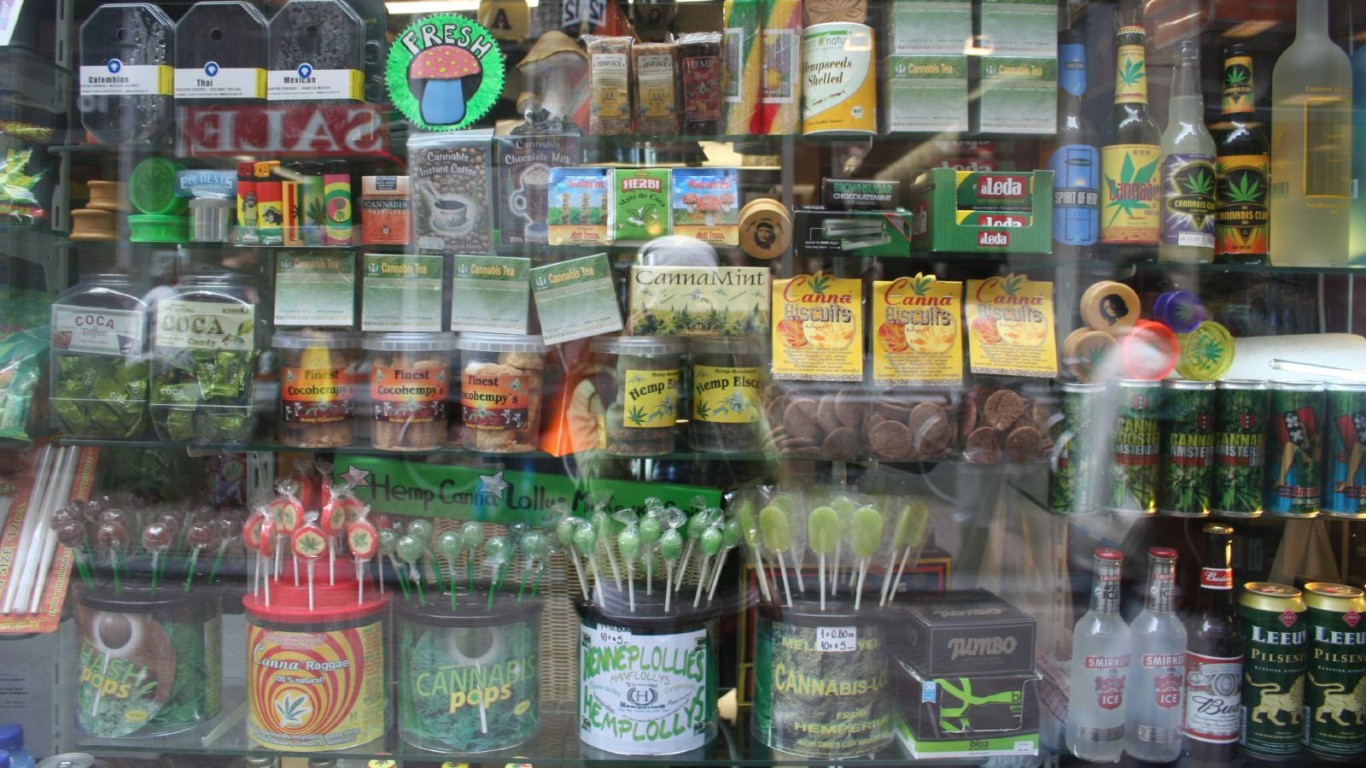Health and Healthcare
Hemp May Be Legal Now, but Products Still Need to Jump Through FDA Hoops

Published:
Last Updated:

Last week, the U.S. president signed the 2018 Farm Bill, which included changes to federal law governing growing and distributing hemp. The bill removes hemp from the list of Schedule I controlled substances that includes heroin, cocaine and marijuana.
The new law also moves regulatory authority for hemp from the Food and Drug Administration (FDA) to the Department of Agriculture. Except when it doesn’t.
On Thursday, FDA Commissioner Scott Gottlieb issued a statement regarding the agency’s regulation of hemp and hemp-derived products. He puts the money quote right up front:
Just as important for the FDA and our commitment to protect and promote the public health is what the law didn’t change: Congress explicitly preserved the agency’s current authority to regulate products containing cannabis or cannabis-derived compounds under the Federal Food, Drug, and Cosmetic Act (FD&C Act) and section 351 of the Public Health Service Act. In doing so, Congress recognized the agency’s important public health role with respect to all the products it regulates. This allows the FDA to continue enforcing the law to protect patients and the public while also providing potential regulatory pathways for products containing cannabis and cannabis-derived compounds.
For makers of hemp products, this means that the FDA treats products containing cannabis or cannabis-derived products just as the agency treats other products it regulates, “meaning they’re subject to the same authorities and requirements as FDA-regulated products containing any other substance.”
Gottlieb remarks further:
[The FDA continues] we continue to be concerned at the number of drug claims being made about products not approved by the FDA that claim to contain [cannabidiol] CBD or other cannabis-derived compounds. Among other things, the FDA requires a cannabis product (hemp-derived or otherwise) that is marketed with a claim of therapeutic benefit, or with any other disease claim, to be approved by the FDA for its intended use before it may be introduced into interstate commerce. … Additionally, it’s unlawful under the FD&C Act to introduce food containing added CBD or THC into interstate commerce, or to market CBD or THC products as, or in, dietary supplements, regardless of whether the substances are hemp-derived.
Hemp differs from its better-known sibling only in its concentration of delta-9 tetrahydrocannabinol [THC], the psychoactive ingredient in marijuana that produces the plant’s famous high. The difference between the concentrations of THC in hemp and marijuana is significant. The most highly concentrated strains of recreational marijuana contain 25% to 30% THC while medical marijuana typically contains 5% to 20% THC. Industrial hemp may not contain more than 0.3% of THC by weight.
Michael McGuffin, president of the American Herbal Products Association, told Green Market Report:
[T]he Commissioner’s emphasis on the legal requirements that must be met for food additives or new dietary ingredients (NDIs) is a clear signal of FDA’s thinking, and we should not be surprised if any forthcoming FDA action focuses on compliance with the law’s provisions for NDI notifications for supplement ingredients, and for hemp ingredients used in foods to meet the provisions to establish these as generally recognized as safe (GRAS) under the law
The same day that Gottlieb released his statement the FDA announced that it had completed an evaluation of three hemp seed-derived food ingredients and added all three to its list of GRAS products. The three products, made by Fresh Hemp Foods, are hulled hemp seeds, hemp seed protein powder, and hemp seed oil.
Among other things, the FDA is trying to protect consumers from companies illegally selling CBD products that claimed to prevent, diagnose, treat, or cure serious diseases, such as cancer. Some of these products also violated the FD&C Act because they were marketed as dietary supplements or because they involved the addition of CBD to food.
Visit the FDA website to read Gottlieb’s full statement.
Thank you for reading! Have some feedback for us?
Contact the 24/7 Wall St. editorial team.